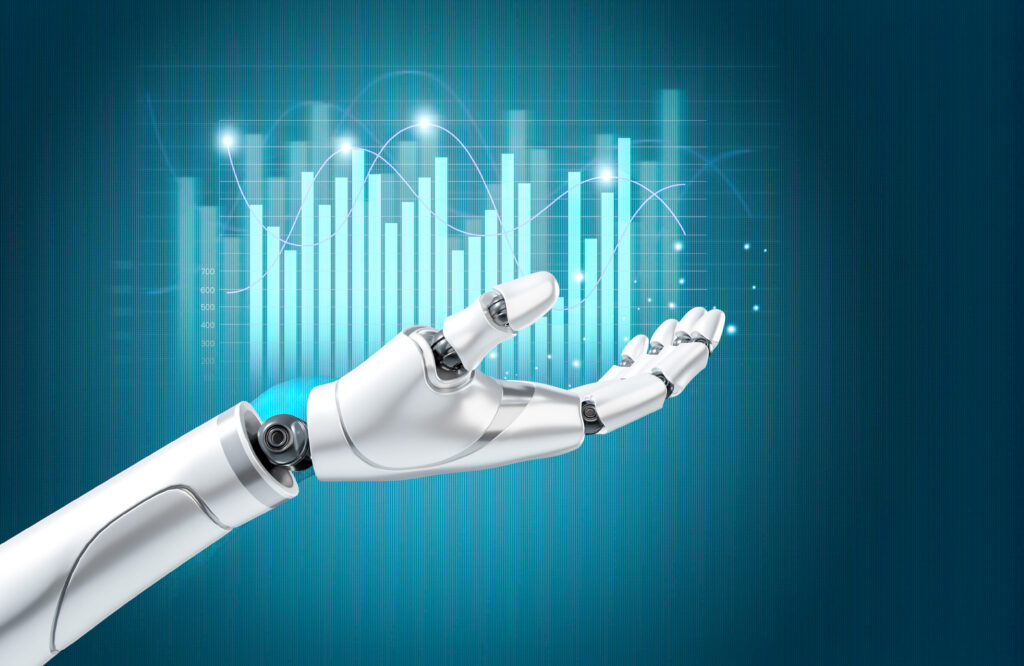
Artificial intelligence (AI) is revolutionising the way the world works, and the accounting industry is no exception. AI has immense potential to replace manual tasks and free up people to engage in innovation and creativity.
But what does this mean for accounting jobs? Will AI replace accountants altogether, or will it create new opportunities for skilled professionals? In this article, we’ll explore how AI is changing accounting, what new opportunities it’s creating, and what accountants can do to thrive in the digital age.
What is Artificial intelligence in Accounting?
Artificial intelligence has reformed the field of accounting, especially in terms of data analytics and automation of repetitive tasks. Machine learning and other AI-powered technologies can enhance data analytics practices for accounting.
In addition, Artificial intelligence can streamline the audit and financial processes, making them more efficient and reducing the risk of human error. With the help of tech-based tools that organize information, AI can save a significant amount of time for bookkeepers, auditors, and financial professionals.
This not only improves their efficiency and effectiveness but also provides real-time financial visibility and insights. Ultimately, AI can lead to better-informed decisions and more value for clients.
Artificial intelligence is Creating Jobs in Accounting
Contrary to popular belief, AI is not going to replace human accountants altogether. In fact, the World Economic Forum (WEF) has issued numerous reports forecasting how AI will impact jobs worldwide. Their analysts predict that automation will result in an increase of 58 million jobs, two-thirds of which will be highly skilled.
They compare the current climate of change to similar times in the past. For example, in the early days of bookkeeping software, accounting jobs changed drastically. Intuit, launched in 1983, and Microsoft Excel, launched in 1985 did not in fact represent the demise of human bookkeepers, as many feared.
Instead, the field grew 75% over the course of a decade.
The net result of new technology in accounting and bookkeeping has been that accounts and tellers performed higher-skilled work than before. With Artificial intelligence and automation, this will continue to be true.
Benefits of Artificial intelligence for Accounting
One of the primary applications of Artificial intelligence in accounting is to automate repetitive tasks. AI-powered systems can efficiently and accurately handle a range of tasks, such as inputting and matching data, reconciling receipts, creating and sending invoices, preparing expense reports, tracking price changes, reconciling accounts, sorting transactions, and generating data reports.
The beauty of AI is that it is based on algorithms that can learn and improve over time as they are fed more data. This means that AI can adapt to changing business needs and processes, leading to even more efficient and effective performance. Moreover, unlike humans who can make mistakes, AI is immune to human error and can work continuously 24/7 without any break or fatigue. Preparation can be automated with AI, allowing bookkeepers to focus on higher-level tasks such as analysis, strategy, and business advisory services.
According to business.com balancing AI and human intelligence, accounting professionals and businesses can utilize technology to benefit their clients, simplify their work, and provide them with greater flexibility to pursue broader opportunities.
Benefits of Artificial intelligence in Accounting
Experts believe that Artificial intelligence can provide significant benefits to accountants, including:
- Invisible Accounting: AI can automate mundane and repetitive tasks like data entry, freeing up human accountants to engage more with strategic decision-making. This leads to a more efficient use of time, which can be used to provide more value to clients.
- Continuous Auditing: AI can continuously audit financial data without the need for breaks, resulting in no gaps in reason or precision, and providing a more accurate and real-time view of financials.
- Active Insight: Accounting managers and leaders can get real-time visibility into their finances through AI-powered analytics and dashboards, enabling them to make better-informed decisions.
Conclusion
While AI may replace some of the tasks performed by bookkeepers, it does not mean that their jobs will become obsolete. Instead, AI can help bookkeepers to become more efficient and effective in their roles. Additionally, Artificial intelligence can provide significant benefits to accountants, including invisible accounting, continuous auditing, and active insight, ultimately leading to better-informed decisions and more value for clients.
What we can do for you
Martina Quinn Finance Recruitment specialises in the placement of qualified accountants up to the executive level nationwide. Our teams have extensive experience (67 years combined) in recruiting in the Irish Market.
We also provide interview preparation to ensure you have the best chance of landing the job. Reach out to the team here at Martina Quinn Finance Recruitment for the best advice and support in building your finance teams contact us today.

